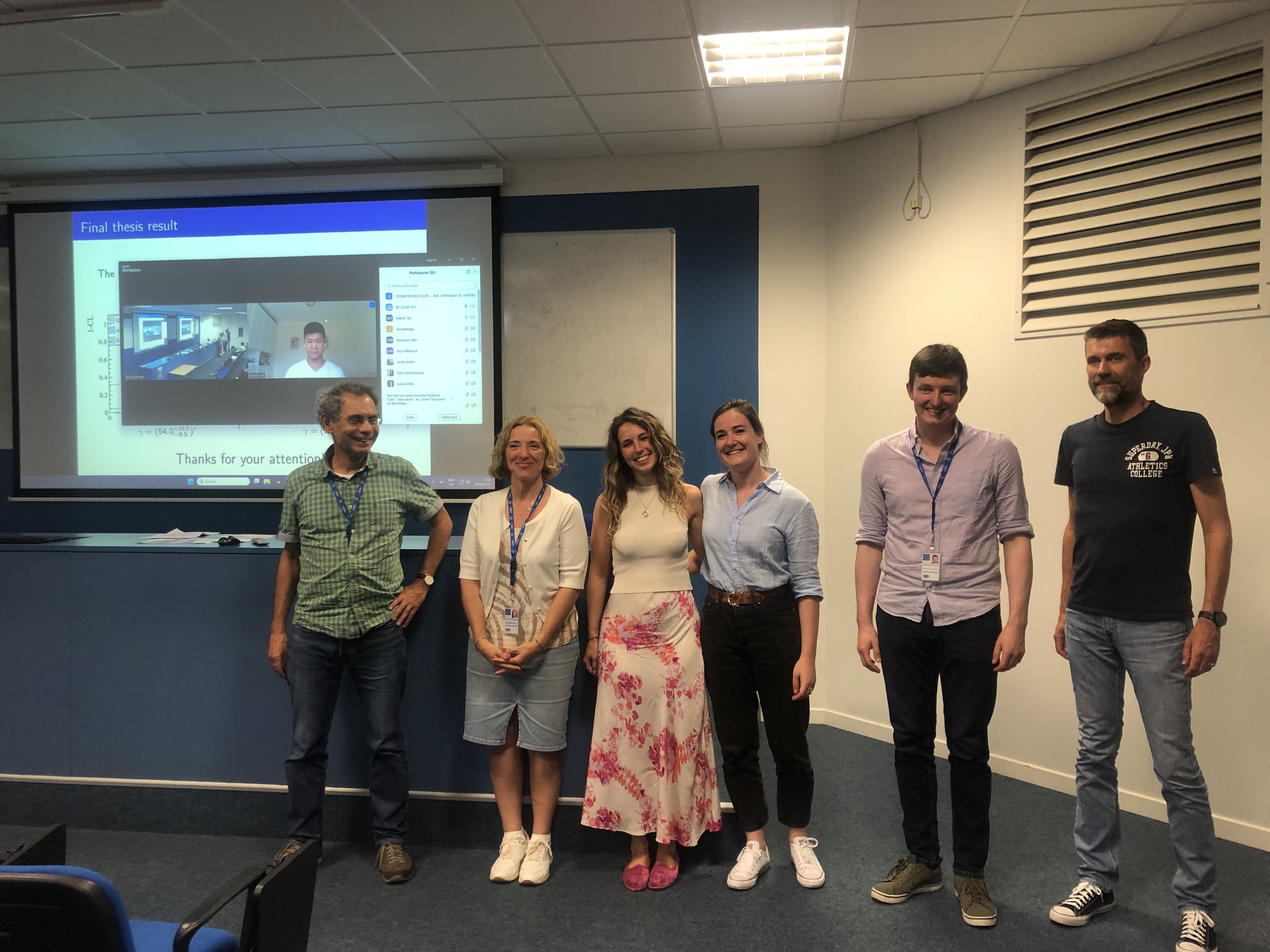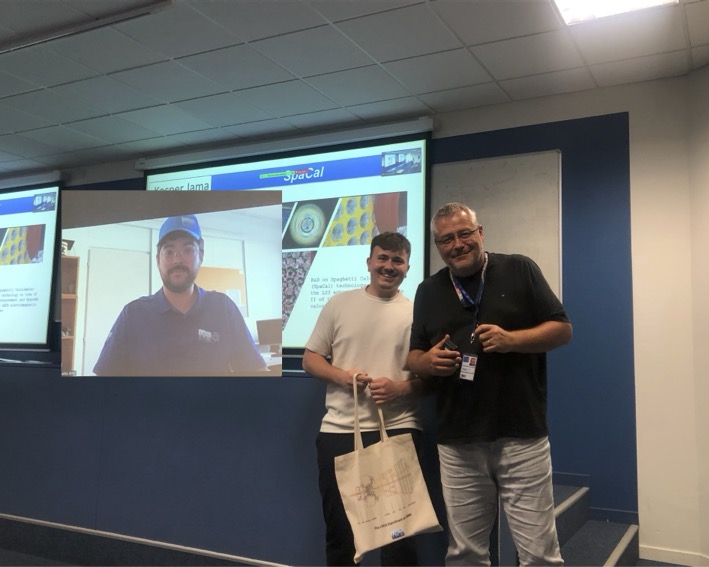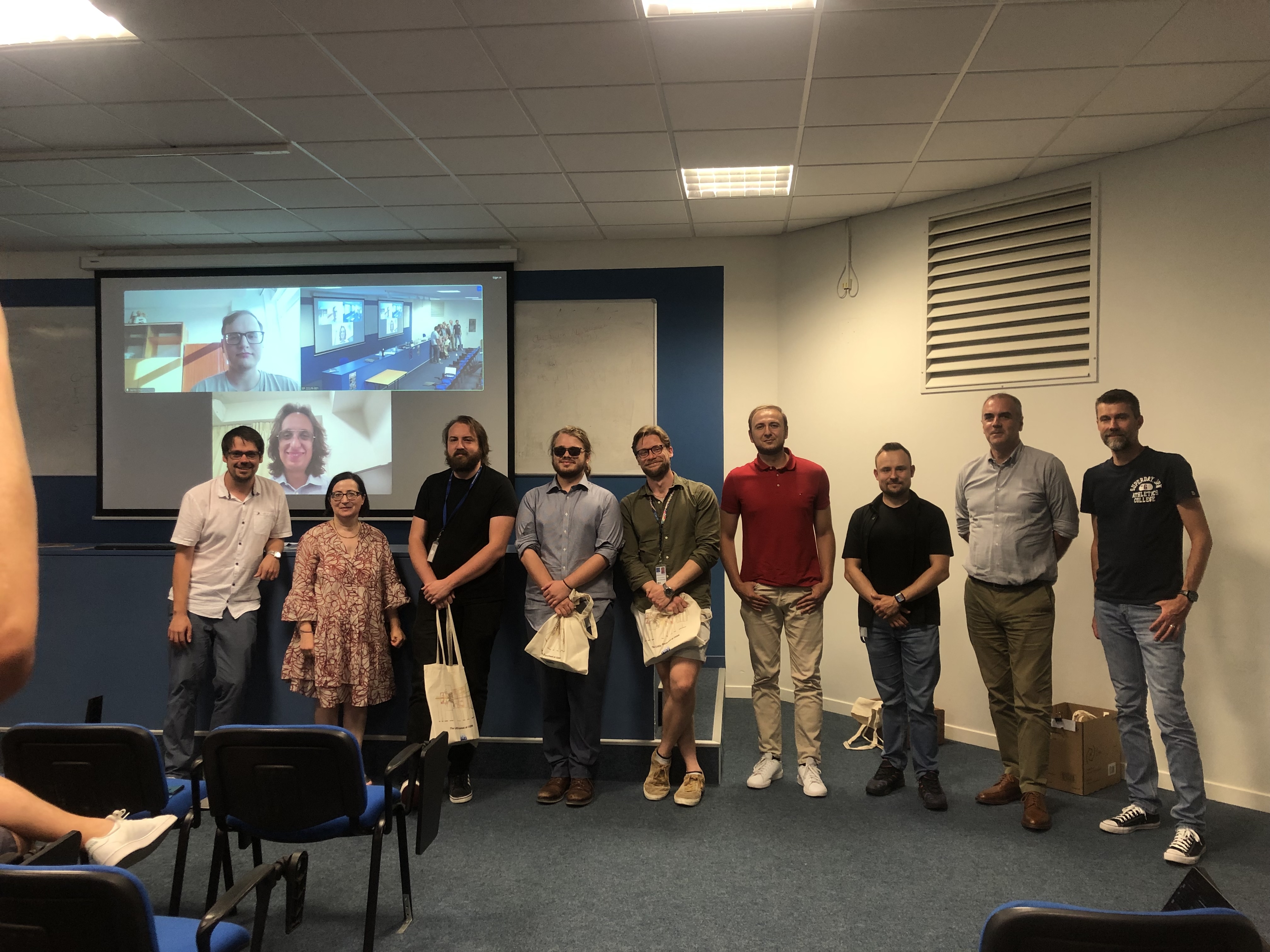Congratulations to the 2025 winners of the LHCb Thesis Awards, Early Career Scientist Awards and Technical Awards. The awards were presented during LHCb week at CERN on Wednesday, 18 June 2025.
"These prizes recognise the excellent work performed by some of our collaborators, but there were also many others who were very deserving," said the chairpersons of the three selection committees, Arantza De Oyanguren Campos, Sneha Malde and Eric Thomas.
LHCb Thesis Award winners 2025

The 2025 LHCb Thesis Awards recognise PhD students who defended their theses in 2024. They reward those with outstanding theses who contributed to LHCb in an exceptional way.
The selection committee considers all the work conducted by a student during their PhD, assessing both the scientific quality and the clarity of the result presentation in the thesis. They give special attention to outstanding contributions to LHCb beyond the main thesis subject, such as contributions to the experiment's overall operation, innovative efforts in promoting LHCb or significant outreach activities.
This year's winners are:
- Federica Borgato (Università di Padova): "LHCb RICH and VELO upgrade studies and measurement of the ratio of branching fractions B(𝚲b0 → 𝚲c(2625,2595)± Ds(*)∓ / B(𝚲b0 → 𝚲c± Ds(*)∓)"
- Chiara Lucarelli (Università di Firenze): "Extending the physics reach of the fixed-target programme at the LHCb experiment"
- Niall McHugh (University of Glasgow): "Search for time-dependent CP violation in D0 → π+π−π0 decays and precision luminosity measurements in LHCb"
- Martin Duy Tat (University of Oxford): "Model-independent measurement of the CKM angle γ in B±→[h+h−π+π−]D h±(h=K,π) decays at LHCb and BESIII"
LHCb Technical Awards 2025

The LHCb Technical Award prize recognises an outstanding contribution to LHCb R&D, operations or the construction or installation of LHCb systems.
This year's winners are:
- Kacper Jama (CERN), for his outstanding contributions to R&D for the Spaghetti Calorimeter (SpaCal) technology, with a view to the LS3 enhancement and Upgrade 2 of the LHCb electromagnetic calorimeter
- Carlos Henrique Ferreira Brito Filho (UF Rio de Janeiro), for his outstanding contribution to the operation of LHCb, by developing and implementing the Analysis Life Cycle Management (ALCM) tool to support analysis tracking from inception to publication in a coherent and sustainable way.
LHCb Early Career Scientist Awards 2024

The early-career prizes are given to individuals or small teams within the collaboration for outstanding or transformative contributions to LHCb, including to its operations or to the area of computing and software.
This year's winners are:
- Vladimir Chulikov (INFN), for an outstanding contribution to the operation of the Muon System, including the tuning of the High Voltage to operate at nominal luminosity.
- Serhii Chernyshenko (Institute for Nuclear Research NAS Ukraine), for a superb contribution to the software development and implementation of the beam and background monitoring system RMS-R3.
- Wojciech Krupa (Syracuse University), for an outstanding contribution to the operation, monitoring and calibration of the Upstream Tracker, enabling operation at nominal luminosity.
- Tim Evans (NIKHEF), Luke Grazette (University of Warwick), Joshua Horswill (University of Manchester) and Ross Hunter (University of Warwick), for their transformative work on the Bandwidth division of HLT1, HLT2 and Sprucing, enabling the physics exploitation of the full software trigger.
- Loris Martinazzoli (CERN), for an exceptional contribution to the R&D of the ECAL LS3 enhancement and Upgrade 2 PicoCal.






